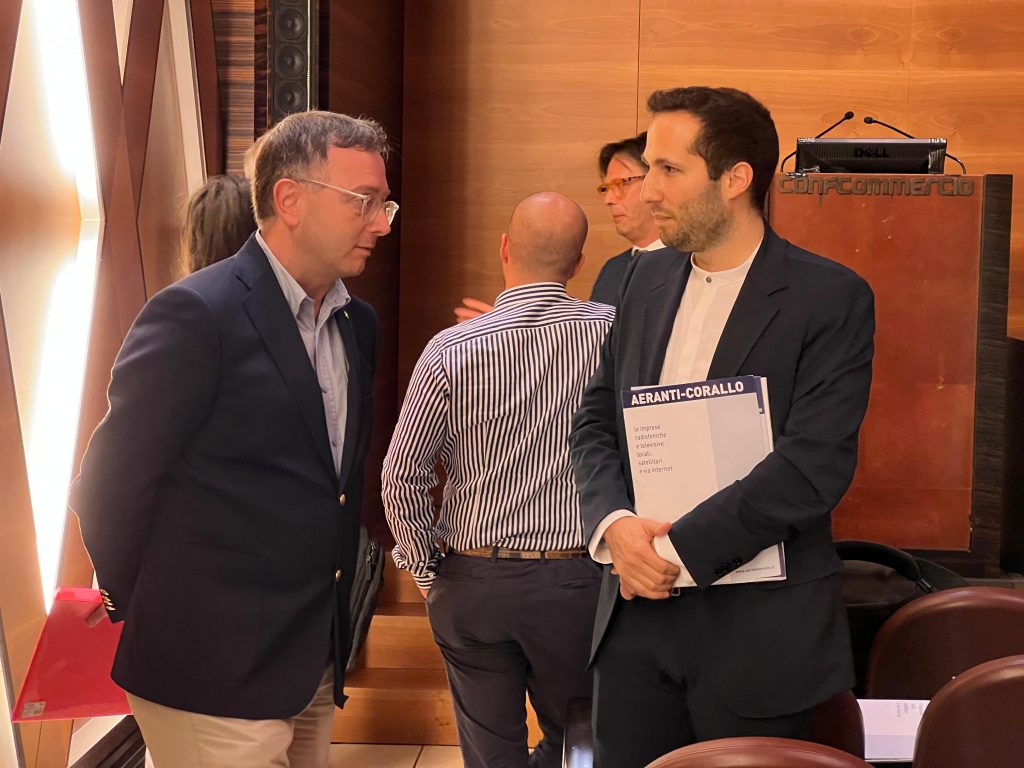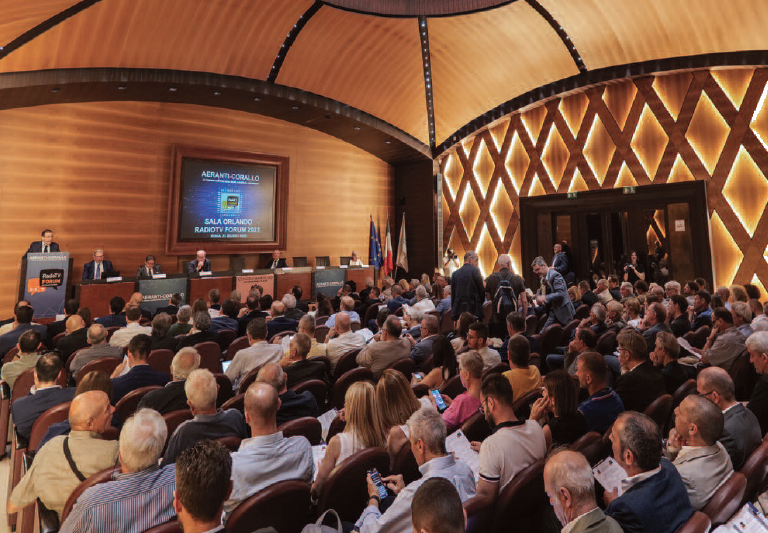On June 21, 2023, Rubidia was among the speakers at the Areanti Corallo RadioTV Forum organized by Aeranti-Corallo, focusing on topics related to the HbbTV platform broadcast on digital terrestrial television. Representing Rubidia was Emanuele Baroni, who shared the following key insights:
Since its inception, television has undergone a radical transformation. In a relatively short period, we transitioned from black-and-white to color, from 4:3 to 16:9, and from analog content broadcasting to digital technology. Television has always dictated the rhythm of its viewers’ lives: “The Kids’ TV” at 4:30 PM, “The News” at 8:00 PM, the movie at 8:30 PM, and so forth.
The advent of social networks has also shaped and influenced television consumption. While audiences once waited for broadcasters to deliver content at specific times, the trend today is to consume content whenever convenient, reflecting the increasingly non-standardized rhythms of modern life.
This behavioral shift will soon compel broadcasters to rethink the concept of scheduling. Instead of being a temporal placement of productions throughout the day, scheduling will become a series of accessible content available at any time and through any device, with exceptions for live events such as news and sports.
It is not far-fetched to envision a future of FULL-IP television. However, as with any technological leap, a gradual approach is necessary.
It is easy to see how a platform like HbbTV can revolutionize the way people interact with television content. By integrating traditional broadcasts with connectivity, HbbTV opens up new possibilities for interactivity, access to online services, and an enhanced user experience.
The HbbTV platform will offer new opportunities for television publishing, developers, and users alike.
The need for increasingly precise standardization between device manufacturers and developers will drive the platform’s global expansion, reaching new markets. HbbTV will foster greater collaboration and partnerships between broadcasters, content providers, and device manufacturers. These synergies will lead to the creation of new services and innovative functionalities.
The concept of HbbTV is often associated with Video on Demand (VoD)—a service allowing users to access digital video content at any time, whether post-produced or live-streamed. However, thinking of this service merely as a content library without recognizing its potential as an additional advertising channel would be limiting. The ability to plan advertising campaigns tied to specific content, offer pay-per-view options, or facilitate content contracts—such as for sporting events—are just a few examples of how this platform extends the traditional television revenue model.
The current versions of the platform allow for a significant level of interactivity between users and content producers. For example, viewers can participate in real-time polls, TV quizzes, make purchases, and even influence the content being broadcast. In the near future, viewers will enjoy immersive experiences with new levels of engagement, including virtual reality (VR) and augmented reality (AR). HbbTV will extend beyond the traditional television screen, enabling users to access its services anywhere via portable devices such as smartphones and tablets.
By collecting precise and accurate data—not merely statistical estimates—HbbTV will be able to offer highly personalized content tailored to user profiles. “Tailor-made” content selections, including targeted advertisements, will become the norm.
Data collection will also provide a deeper understanding of user habits, including the type of devices used to access content, time spent on channels, and much more. Through accurate data analysis, broadcasters will be better equipped to make informed decisions regarding content production and its scheduling.
For us, as system developers, key considerations must include fraud prevention and data security, in full compliance with current regulations.
Guaranteeing content publishers methods that safeguard sensitive data and protect applications from attacks must be a top priority.
This is why encryption, firewalls, and continuous software updates to address vulnerabilities exploited by hackers or unauthorized parties must be employed.
Regular data backups are equally essential to safeguard against unforeseen events such as hardware failures, cyber-attacks, or human error.
Awareness of potential threats, such as phishing, spoofing, and social engineering, is critical to recognizing and preventing fraudulent attempts.
At the same time, it is important to acknowledge the resource constraints faced by local or regional broadcasters in implementing new technologies. Personnel already engaged in producing television workflows often cannot be reassigned to manage emerging platforms. Therefore, our focus must shift toward maximizing the automation of production processes. This approach will minimize human error, improve overall productivity, and ensure consistency and speed. Manual and repetitive tasks degrade personnel value, tying them to processes that do not yield higher outputs with fewer resources. Automating production processes inevitably brings advantages such as cost reduction, production continuity, and elimination of resource downtime. However, it is essential to emphasize that automation must always be carefully monitored and managed by humans. The ultimate goal should be workforce requalification, enabling personnel to engage in high-value activities such as research and development, thereby enhancing competitiveness in the market.
HbbTV, therefore, stands as a continuously evolving platform, ready to redefine the future of television entertainment.




